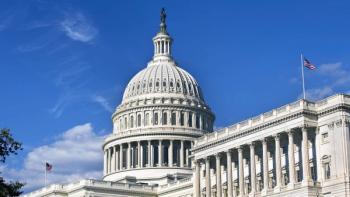
The broader national strategy sets seven goals, some fairly general, such as building public trust, safely reopening schools and businesses, advancing racial and ethnic equity, and restoring US global leadership.

Jill Wechsler is Pharmaceutical Technology's Washington Editor, jillwechsler7@gmail.com.

The broader national strategy sets seven goals, some fairly general, such as building public trust, safely reopening schools and businesses, advancing racial and ethnic equity, and restoring US global leadership.

Since FDA authorization of two innovative mRNA vaccines to combat COVID-19 in late 2020, 30 million doses have been distributed, but only 4 million people were vaccinated in December 2020, and just 13 million have received shots so far.

As the Biden administration readies to take over the reigns of government, top administration officials continue to rush through new rules and decisions that appear to challenge the independence and effective operations of FDA.

The vetting and authorizing of important new therapies remained productive in 2020, despite the need to devote considerable resources to dealing with COVID-19 related approvals and policies.

The incoming administration faces key decisions on drug testing and access as well as vaccine distribution challenges.

President Trump signed the COVID-19 package, which appropriates $2.3 trillion to finance the federal government through September 2021 and provides support for individuals and entities suffering from the economic crisis wrought by the pandemic.

Success in combatting the pandemic depends on the ability of manufacturers to quickly and efficiently produce and distribute the huge quantities of vaccines demanded by the United States government and public health organizations around the world.

Manufacturers and regulators accelerate R&D and production of new vaccines and therapies.

The Trump administration unveiled a new drug price control policy, drawing opposition from pharma manufacturers and pharmacy benefit managers.

The first public announcement from the Biden-Harris transition team was to name members of a COVID-19 advisory board charged with initiating policies and actions to combat the fast-rising infection rate in the United States

As part of the administration’s campaign to reduce the United States’ reliance on an increasingly global pharmaceutical supply chain and to minimize potential shortages for critical drugs, FDA has published a list of those drugs and medical products considered critical for addressing public health emergencies.

The much-anticipated meeting of FDA’s vaccine advisory committee this week is slated to address a number of critical issues related to testing and approval of vaccines to prevent COVID-19 infection.

Bio/pharma industry leaders support FDA’s newly published EUA guidance for COVID-19 vaccine authorization.

Drug shortages and supply chain challenges bolster FDA efforts to promote modern manufacturing.

With little more than a month to go until the national election, President Trump announced a revised initiative designed to reduce what consumers pay for prescription drugs, while also promising to protect coverage for pre-existing health conditions.

Fears about overly accelerated development programs has heightened demands for wider access to information on study protocols, statistical analysis plans, and early results.

The White House issued an executive order Sunday, Sept. 13, 2020 implementing a policy to link payments for medicines provided through Medicare to prices charged in other industrial countries.

Industry leaders insist they will maintain high standards for clinical trials and regulatory submissions for new vaccines and therapeutics to combat COVID-19.

A new FDA guidance provides answers to questions about when the agency will seek to visit a site during the COVID-19 pandemic and how it will respond when a needed inspection cannot be conducted safely.

The White House initiative to encourage production of essential medicines in the United States calls on FDA to set the parameters for and implement main aspects of the program.

As biopharma companies and research institutes work to develop vaccines against COVID-19, policy makers and health officials debate strategies for ensuring fair and equitable distribution of anticipated preventives.

Efforts by regulators seek common approaches to clinical research and biopharmaceutical production needed to wipe out the coronavirus pandemic globally.

Patient advocates, research experts, and industry are calling for more user fee revenues to support CBER programs to advance innovative therapies.

Should therapies and vaccines be cheap or free in a pandemic and would that really dry up innovation?

Industry should be seeking more information from FDA on how it will restart its current inspection program.

FDA officials are moving to clarify standards and requirements for vetting and approving viable preventives.

FDA can better monitor quality production of domestic versus foreign firms.

FDA is placing emphasis on developing guidance documents more quickly and efficiently, and agency officials expect that such approaches may continue in the future.

FDA is placing emphasis on developing guidance documents more quickly and efficiently, and agency officials expect that such approaches may continue in the future.

FDA has revoked its Emergency Use Authorization hydroxychloroquine and chloroquine, citing new evidence and reanalysis of earlier data confirming that the drugs show no evidence of effectiveness against the coronavirus and raise continued concerns about cardiovascular safety risks.